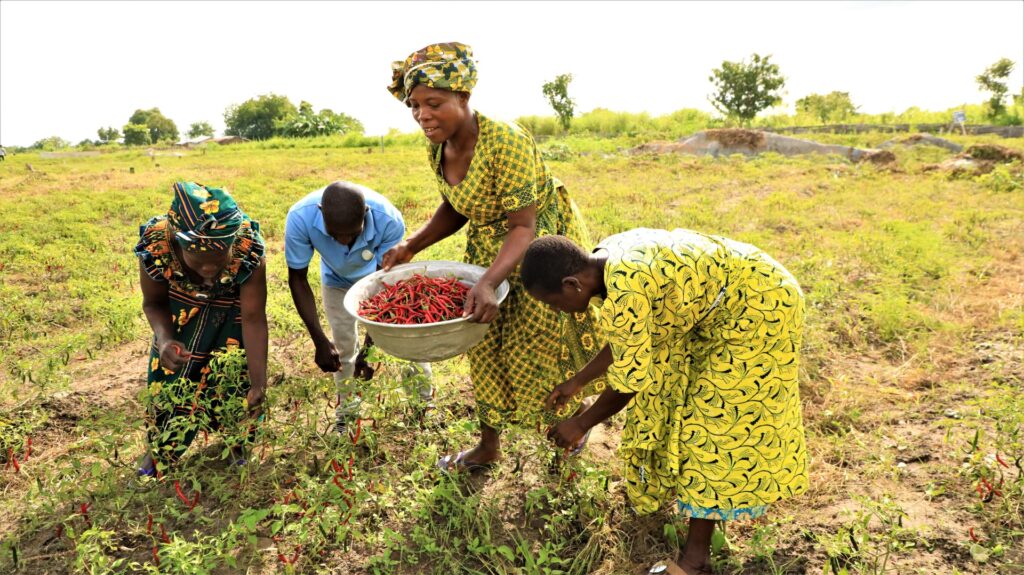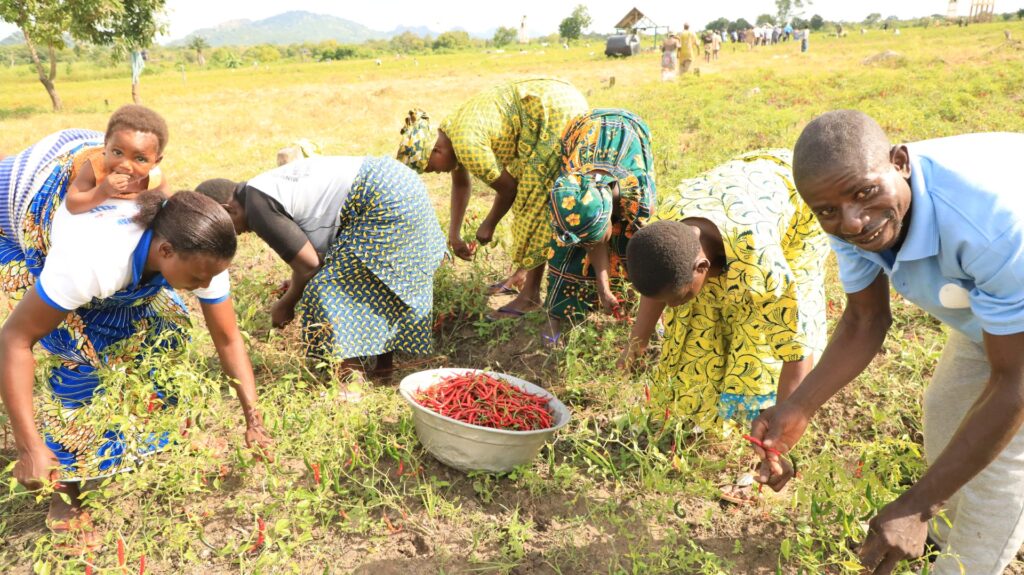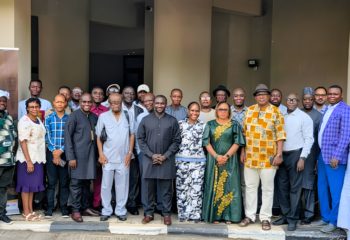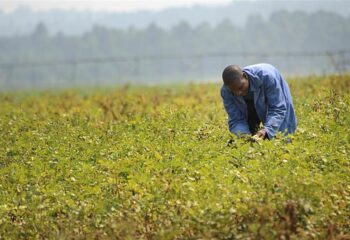
The International Fertilizer Development Center (IFDC) believes that the efficient use of rock phosphate represents a promising method for improving soil fertility in West Africa. Since rock phosphate is abundant in several countries in the sub-region, this approach would make it possible to remedy a number of challenges linked to agricultural productivity. The efficient use of rock phosphate represents a significant step toward sustainable agriculture and long-term food security on the continent.
During a webinar on July 11 organized by IFDC through the Feed the Future Enhancing Growth through Regional Agricultural Input Systems (EnGRAIS) project on the use of natural phosphates for local fertilizer production, IFDC’s Director of Soil Health and Agricultural Productivity Dr. Ekwe Dossa presented the results of his research. Two hundred participants from the fertilizer value chain connected to learn about the potential of rock phosphate.
“When you grow the same plants in a soil and want to avoid depleting its fertility, you can improve its structure using simple, accessible means,” said Dr. Dossa in his introduction. Rock phosphate, rich in plant-essential phosphorus, is an abundant but often overlooked resource in agricultural management. Unlike chemical fertilizers, it improves soil fertility over the long term, supporting a sustainable ecological balance.

Rock phosphate is a crucial raw material for improving soil fertility, especially when activated to increase efficiency. However, studies have shown that nutrients will not necessarily be released, to be absorbed readily by the plant; the reactivity of rock phosphate depends on the degree of solubility of nutrients from different sources. For example, some rocks have a high level of ammonia citrate solubility.
“Today, we have rock phosphate, which can be used in certain situations to enrich the soil. The main element in rock phosphate is apatite. We therefore need to improve its capacity to supply phosphate so that it can be absorbed by the plant.”
Dr. Ekwe Dossa, IFDC Director of Soil Health and Agricultural Productivity
To take full advantage of rock phosphate, therefore, activation techniques are required. Activation techniques can include acidulation to increase the availability of phosphorus to crops, as well as combining with organic amendments to improve soil structure: “There are several methods for improving the effectiveness of rock phosphates, including chemical and biological means. For example, combining phosphate with compost can improve the availability of phosphorus to plants. There are also organisms that can help unlock the potential of rock phosphate,” Dr. Dossa explained.
He also noted that the structure of rock phosphates varies from country to country. Tanzania’s rock phosphate, for example, is highly reactive and can be used directly, especially on acidic soils, where plants react better. Togo’s phosphate, on the other hand, has a low reactivity and has no immediate effect when applied directly to plants.
Dr. Dossa pointed out that several factors affect the reactivity of phosphate: when in block form, it is more reactive than in granular form, due to its physical and chemical characteristics. For natural phosphates with low reactivity, it is important to improve their ability to release nutrients to plants.

“We encourage policymakers to support the use of rock phosphate present in our subsoils for soil fertility management in Africa. This will not completely solve the problem, but it will help to alleviate certain situations of soil impoverishment,” recommended Dr. Dossa.
At the close of the webinar, Chief of Party of the EnGRAIS project Dr. Sansan Youl thanked the participants and partners, including USAID, ECOWAS, and IFDC management, for their commitment to mobilization. He stressed further that the valorization of rock phosphate is the key to sustainable agriculture and improved food security.
Since the issue of fertilizers and soil health remains a major concern requiring simple yet sustainable solutions, IFDC is committed to organizing similar conferences in the future to find such solutions for soil health in Africa and increased productivity through the proper use of fertilizers.
The Feed the Future Enhancing Growth through Regional Agricultural Input Systems (EnGRAIS) Project for West Africa is one of the many assistance programs supported by the American people through the United States Agency for International Development (USAID).






